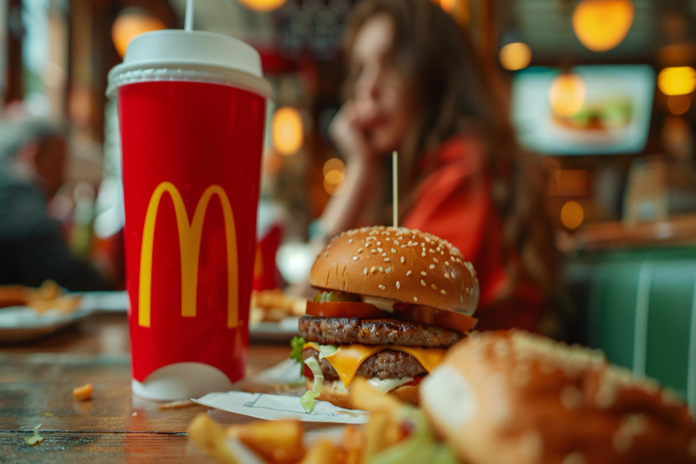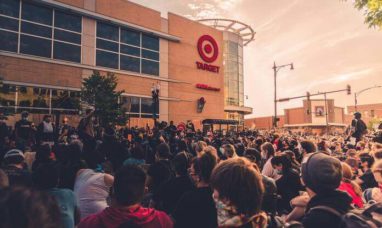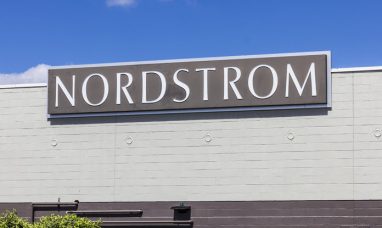McDonald’s (NYSE:MCD) has long been intertwined with American presidential politics, from Bill Clinton’s casual stops to Donald Trump’s fast-food feasts at the White House. However, the current election cycle has brought an unprecedented level of attention to the fast-food giant, as both Kamala Harris and Trump vie to be the candidate most closely associated with the brand that claims nearly 9 in 10 Americans visit at least once a year. This renewed focus on McDonald’s political influence raises questions about the potential impact on the company and its business.
Harris and Trump’s McDonald’s Connections
Kamala Harris has recently highlighted her history with McDonald’s, recalling her time working at the restaurant during a summer in college. In speeches and campaign ads, she has emphasized the experience as a way to connect with working-class voters, many of whom rely on jobs like the one she once held. “I worked at McDonald’s to earn spending money,” Harris told a crowd in North Carolina, adding that many of her coworkers were raising families on their paychecks.
Trump, meanwhile, has long showcased his affinity for McDonald’s, frequently touting his love for the chain. He famously served Big Macs at the White House and continues to use the brand as a touchpoint in his campaign. Recently, he even questioned Harris’s claim of having worked at McDonald’s, suggesting it might be a fabrication, though without providing any evidence.
Impact on McDonald’s: Policy vs. Publicity
While the attention on McDonald’s from both political figures is significant, the real impact on the company may stem more from policy than from publicity. Sean Dunlop, an analyst at Morningstar, noted that while the campaign trail attention is unlikely to have a massive financial impact, the policies that follow could be more consequential.
One of the most pressing issues for McDonald’s is the potential for increased minimum wage laws, a topic that has seen renewed focus in Harris’s home state of California. Governor Gavin Newsom recently signed Assembly Bill No. 1228, raising the minimum wage for fast-food workers to $20 per hour. This legislation has sparked concern among fast-food executives, including those at McDonald’s, who argue that such wage increases could drive companies out of the state.
McDonald’s has been actively involved in lobbying efforts to influence these legislative changes. The company has already directed funds to local legislators in states like Oregon and Illinois, where similar wage bills are being considered. This ongoing advocacy highlights the tension between McDonald’s corporate interests and the broader political landscape, where wage policies are becoming a central issue.
The Broader Political Landscape for McDonald’s
Beyond the minimum wage, McDonald’s faces other potential challenges at the federal level. The company has spent $1.4 million this year on lobbying efforts, focusing on issues like labor practices and unionization. Proposals before the National Labor Relations Board and Congress could lead to more oversight of franchise labor practices and increased unionization efforts among fast-food workers.
Harris’s history of criticizing McDonald’s wages during her 2020 presidential run, where she claimed the company was “falling short,” suggests that labor issues could remain a contentious point between her and the fast-food giant. While she hasn’t directly targeted fast-food chains in her current campaign, her push for a higher federal minimum wage could have significant implications for McDonald’s and the broader industry.
McDonald’s Political Image: A Double-Edged Sword
McDonald’s political influence has ebbed and flowed over the years, from being a symbol of Americana to facing criticism in the wake of documentaries like “Super Size Me” and books like “Fast Food Nation.” Despite this, the brand remains a powerful cultural icon, frequently used by politicians to connect with everyday voters. Whether it’s Clinton reminiscing about his visits or Trump’s fast-food banquets, McDonald’s continues to be a part of the political narrative.
As the 2024 election cycle heats up, McDonald’s finds itself in the spotlight once again. While the attention from Harris and Trump underscores the brand’s enduring cultural significance, the real impact on the company will likely come from the policies shaped by the next administration.
Conclusion: Navigating Political Influence
McDonald’s political influence, highlighted by the current campaign attention, is a double-edged sword. While it boosts the brand’s visibility, it also places the company at the center of contentious policy debates. As McDonald’s navigates these challenges, its ability to maintain its market position will depend on how it manages both its public image and its response to the evolving political landscape.
Featured Image: Freepik









